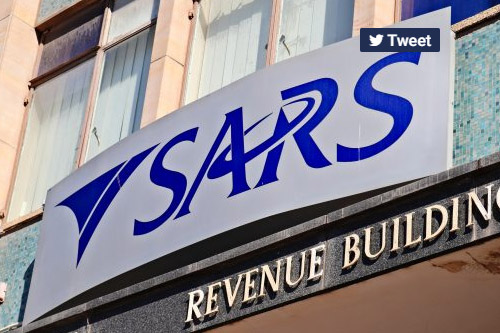The purpose of the Voluntary Disclosure Programme (VDP) and the Special Voluntary Disclosure Programme (SVDP) under the Tax Administration Act is to enhance voluntary compliance “in the interest of enhanced tax compliance, good management of the tax system and the best use of Sars [South African Revenue Service] resources”.
The programme represents an additional avenue for Sars to collect income from taxpayers. The process should therefore be relatively smooth sailing, and not financially onerous.
VDP relief is applicable to all taxes administered by Sars (excluding duties and levies charged under Customs and Excise), while the SVDP is applicable to undisclosed offshore income and assets. Declarations must be made via eFiling.
Relief from prosecution and penalties, but …
Taxpayers can avoid criminal prosecution by making full disclosure.
If the application is successful, penalties may be waived in full and the taxpayer can arrange to settle the outstanding tax liabilities.
Many taxpayers may use the VDP to correct an error that has been made in the preparation of an income tax return submission – such as deducting a capital expense in error – but there is uncertainty as to how the VDP unit will treat this.
Read: When voluntary disclosure is not voluntary
According to Webber Wentzel partner Joon Chong: “It is not usually necessary to provide detailed reasons of the tax defaults in the VDP application. The VDP unit should not be conducting an audit.”
She adds that if the error is the reason for the VDP application, the “overstatement of deductible expenditure would be the tax default set out in the VDP application form”.
Sars comments thus: “The VDP may be used to correct such default provided that it does not result in a refund to the taxpayer.
“It should be noted that a VDP application and assessment to correct a default on a tax return would not absolve the taxpayer of their tax obligations.”
The VDP unit recently engaged with taxpayers and practitioners in a VDP Feedback Survey. Nicholas Nemalili has been appointed to head up the unit, and is expected to overhaul the VDP process and resolve the numerous issues facing the process and ensure that the VDP unit is being used to the best advantage of the fiscus.
Concerns were expressed by taxpayers and tax practitioners, and Moneyweb asked Sars to comment.
1. Processing a VDP application
The current average turnaround time of processing a VDP application is 201 working days. This creates a lot of uncertainty for the taxpayer. What is being done to reduce this backlog?
Sars: “Due to the high volumes of both VDP and SVDP applications received towards the end of the SVDP window period in relation to offshore disclosures, the average turnaround time per case of 201 working days for VDP cases and 137 working days for SVDP tax cases was at the height/peak of that period. This turnaround time has since reduced. VDP applications submitted as at January 31 have been allocated for evaluation and processing. We acknowledge the role of tax practitioners who have ensured that all necessary supporting documents required from foreign jurisdictions to substantiate a full and complete disclosure are timeously sourced and provided to Sars.
Where documents are not available, we encourage taxpayers and tax practitioners to source the documents timeously. We appeal for full and complete applications with all the necessary information from the onset of submission. Sars is currently streamlining its processes within the VDP unit while constantly monitoring and addressing capacity and load demands.”
1.2. Does Sars put in place a stay of prosecution and audit during this period?
Sars: “No it does not. The VDP process is not intended to interfere with other Sars processes. However, once a VDP application is submitted prior to a notice of commencement of an audit or investigation or any intervention that may render the application not voluntary, the default disclosed as part of the VDP application will only be regularised through [the] VDP process.
“Applications for voluntary disclosure should occur prior to the notification of commencement of audit.”
1.3. What if the taxpayer needs a clearance certificate?
Sars: “The tax compliance status of a taxpayer is based on the submission of returns and full payment of outstanding debt or an approved debt deferment and payment arrangement. The tax compliance status process is not dependent on the VDP process as outstanding returns and debt are to be regularised through the standard processes available.
“Where a taxpayer is of the view that the default in question will have an impact on their tax compliance status, nothing prevents the taxpayer from submitting their tax returns and making the necessary payments during the VDP application stage to prevent negative non-compliance status, once the VDP application is approved, the necessary relief will then be granted.”
2. Clarity for taxpayers
Is there a plan to update the existing guide to the VDP process and publish an interpretation note?
Sars: “The existing external guide is still relevant and applicable. Feedback received from taxpayers and tax practitioners is used to update our Frequently Asked Questions (FAQ) page on the Sars website. Please see Sars webpage on Voluntary Disclosure Programme (VDP). Taxpayers seeking clarity on matters not yet addressed through our FAQ webpage or applicable guide may send a request to vdp@sars.gov.za. To enquire about the eligibility for VDP relief, taxpayers may make use of a ‘no-name’ VDP application. Please see our webpage in this regard. Sars engaged roleplayers recently who submitted clarity-seeking questions and suggestions. This is part of a continuous engagement process and interested parties may e-mail policy suggestions to policycomments@sars.gov.za.”
3. Questions of interpretation
Practitioners have complained about inflexibility on questions of interpretation. How does Sars intend to address this? Perhaps in an interpretation note that can be put out for comment?
Sars: “Sars has been consistent with its interpretation of what constitutes a voluntary disclosure application and issues requiring legislative clarity. Submissions in this regard have been subjected to internal processes as far as the legislation is concerned. Guides and the FAQ webpage seek to respond to questions.”
4. What if a taxpayer proposes withdrawing from the VDP process?
Apparently there is the threat that Sars will impose penalties if a taxpayer proposes to withdraw from the VDP process before signing the VDP agreement.
Sars: “The VDP aims to encourage taxpayers to come forward on a voluntary basis to regularise their tax affairs with Sars. A taxpayer may at any stage withdraw from the VDP process. It is important to note however, that under the VDP process, Sars will not raise assessments without the consent of the applicant. Where the applicant wishes to withdraw from the VDP process after consenting to the raising of assessments, the taxpayer will have to make use of other internal Sars processes to deal with such assessments. VDP relief is only granted if the VDP agreement is in place.”
5. Unreasonable deadlines
Practitioners allege that the VDP unit gives unreasonable times to respond.
Sars: “A VDP application by its nature should be full and complete from the onset, substantiating all claims contained in the application with the required supporting information and documentation. Our systems allow for the provision of such information from the onset for a full and complete submission.
“Sars communicates with the applicant when additional information is required. Taxpayers who are not able to meet the deadline provided may request an extension. Sars will grant reasonable extension requests on a case-by-case basis. In the event a taxpayer does not provide information as requested, a reminder is sent out providing a further time frame to respond.”
6. Payment arrangements
Is there a standardised process for payment arrangements?
Sars: “Yes, there is a standard process; taxpayers requesting a payment arrangement are subjected to the applicable process. Taxpayers requiring a payment arrangement may indicate such in their submission letter at the application stage and the relevant forms will then be sent to them, which Sars will review.”
7. The process appears unlikely to attract taxpayers who should disclose
The process appears to be unattractive and is not likely to attract taxpayers who should disclose.
Sars: “Enhancements that will reduce the processing time of applications are being considered. VDP relief is limited to the provisions of current legislation.”
8. Backlogs on pending applications
How does the VDP unit intend to address the backlogs?
Sars: “Sars is currently streamlining its processes within the VDP unit while constantly monitoring and addressing capacity and load demands. VDP applications submitted as at January 31 have been allocated for evaluation. Applications requiring additional information and where such is outstanding will incur delays in finalisation.”
Taxpayer-friendly approach needed
Chong and Wesley Grimm, an associate at Webber Wentzel, participated in the survey and report as follows:
“What was clear from the survey is that it was understood that Sars must prioritise clearing the processing backlogs on pending applications and that an enhanced ‘taxpayer-friendly’ approach, within the existing framework, is required.
“Also, that the policy approach on VDP applications needs reconsideration, particularly on the remission of interest in certain circumstances, and the possibility of submitting an objection against interest imposed by Sars. There are also difficulties with securing payment arrangements on the payment of the taxes due. Many issues have resulted in a dwindling appetite in taxpayers to enter into the VDP process for tax defaults.
“This is unfortunate as the VDP process provides an opportunity for the fiscus to increase tax revenue easily.”
It is welcomed that Sars is openly engaging with taxpayers and practitioners to iron out practical problems.
Article: Moneyweb





